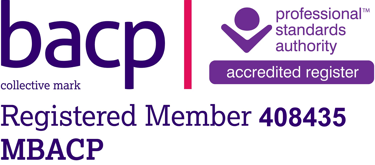
Healing from abuse
A space to be heard, believed and supported as you start to rebuild trust in yourself and in the world around you.
Experiencing abuse, whether emotional, physical, sexual or psychological, can leave lasting effects. You may find yourself feeling anxious, numb, mistrustful, or disconnected from others. Perhaps you question your own memories or struggle to feel safe in your body. These reactions are understandable responses to what you’ve been through.
Therapy for people who have experienced abuse offers a confidential, compassionate space to begin to explore these experiences at your own pace. It isn’t about reliving what happened, but about understanding how the past still lives in you now. Together, we can begin to notice what feels too painful, too frightening or too confusing to face alone.
What is Therapy for People Who Have Experienced Abuse?
Therapy for people who have experienced abuse is a process of gentle exploration and repair. It can help you to begin recognising how trauma may have shaped your thoughts, emotions and relationships, and to discover new ways of being with yourself that feel more grounded and safe.
In our work together, you may start to notice patterns, moments when you shut down, feel overwhelmed, or lose trust. Therapy can offer a space to slow down and explore these responses with care. You don’t need to tell your story before you’re ready. My role is to go at your pace, always centring your sense of safety and control.
Many of my clients experience therapy for abuse as a chance to rebuild connection with themselves, with others, and with life. It can be the beginning of feeling whole again, even if that takes time.
Signs You Might Benefit from Therapy
You might be considering therapy for abuse if you’ve experienced harm in a relationship, whether from a partner, parent, colleague, or someone else in your life. Abuse can take many forms, and it can sometimes take years to recognise it for what it was.
You may find yourself:
Feeling anxious, fearful, or constantly on edge
Struggling with trust or closeness in relationships
Experiencing flashbacks, nightmares or sudden emotional reactions
Feeling detached, numb, or disconnected from your body
Questioning your memories or blaming yourself for what happened
Carrying a sense of shame or guilt that feels hard to shake
Therapy can offer a space to begin untangling these feelings. There’s no right or wrong way to begin. Simply wanting to understand what happened and how it continues to affect you is reason enough to start.
How Therapy Works When You’ve Experienced Abuse
Our work together begins with a conversation. In the first session, we can talk about what has brought you here, what you’d like from therapy, and what feels possible right now. You don’t need to go into detail about your experiences until you feel ready.
Therapy for people who have experienced abuse unfolds at your pace. We might begin by focusing on safety, helping you find ways to manage distress, calm your nervous system and feel more grounded. Over time, we can start to explore the emotional and relational impact of the abuse, always guided by what feels manageable for you.
The aim isn’t to erase the past, but to help you live with it differently and with more understanding, self-compassion and choice.
My Expertise and Approach
I trained at the Minster Centre, one of the leading psychotherapy institutions in the UK. My training is integrative, which means I draw from a range of approaches, including psychodynamic, humanistic and body-based perspectives, to respond to what each person needs.
I’ve worked in a bereavement service and a specialist service supporting gay men, and have experience working with clients recovering from various forms of trauma and abuse.
In sessions, I aim to create what therapists call a “safe container” - a relationship built on empathy, curiosity and trust. Many people find that within this space, they can begin to feel heard and believed, sometimes for the first time. From there, healing in whatever form that means for you can begin.
The Benefits of Therapy for People Who Have Experienced Abuse
Therapy is a process that unfolds gradually. Everyone’s journey is different, and there’s no set destination. What feels helpful for one person may not be right for another.
Many people experience therapy for abuse as a space where they can begin to:
Feel safer in their body and emotions
Develop trust in themselves and others
Recognise that what happened was not their fault
Release shame or self-blame
Reconnect with a sense of vitality, creativity or hope
Live with more ease in relationships and daily life
These shifts often take time. Therapy may not make the pain disappear, but it can help you carry it differently with more compassion, perspective and choice.
Why Contact Me?
✓ Trained at the Minster Centre, one of the UK’s leading psychotherapy institutions
✓ Experienced in supporting people with anxiety, depression, grief, stress and burnout
✓ Over two years working in a bereavement service, alongside specialist work
✓ An integrative therapist, drawing from different traditions to tailor therapy to each person
✓ A background in working with activists, changemakers, leaders and ex-boarders
✓ Committed to creating a safe, empathic and collaborative therapeutic space


Start Your Therapy Journey Today
If you'd like an introductory session, please email me or message me using the details below or the contact form.
Phone
Location
231 Shoreditch High Street, E1 6PJ or Online
FAQs About Therapy for Neurodivergence
What is therapy for abuse?
Therapy for people who have experienced abuse offers a safe and confidential space to explore the impact of abuse, whether emotional, physical, sexual or psychological. It isn’t about reliving painful experiences, but about helping you understand how those experiences continue to shape your feelings, relationships and sense of self today.
Do I need to talk about what happened in detail?
No. You’re in control of what you share and when. Some people find it helpful to talk directly about their experiences, while others prefer to focus on how they’re feeling in the present. We’ll move at a pace that feels right for you.
How can therapy help me after abuse?
Therapy can offer a chance to feel heard and believed, perhaps for the first time. Many people find that over time, they begin to feel safer in their bodies, more confident in relationships and more able to manage difficult emotions. While therapy can’t erase the past, it can help you live with it differently with more understanding and compassion.
What if I’m not sure it was abuse?
It’s very common to feel uncertain or conflicted about what happened. Therapy can be a supportive space to explore those doubts without judgement. Whether or not you use the word “abuse,” what matters is how the experience has affected you.
I’ve had bad experiences in therapy before. Can I try again?
Yes. If you’ve felt misunderstood or unsafe in previous therapy, that’s something we can talk about together. A key part of the work is building a sense of trust and safety, so you feel able to explore your experiences in a way that feels manageable.
Do you offer online sessions?
Yes. I offer therapy both in person in Hackney, East London, and online. Some people find online sessions more comfortable, especially when beginning to explore difficult material.


Qualified therapist based in Hackney, London
Online Therapy
© 2025 Andrew Tobert Therapy | Terms & Conditions | Privacy Policy